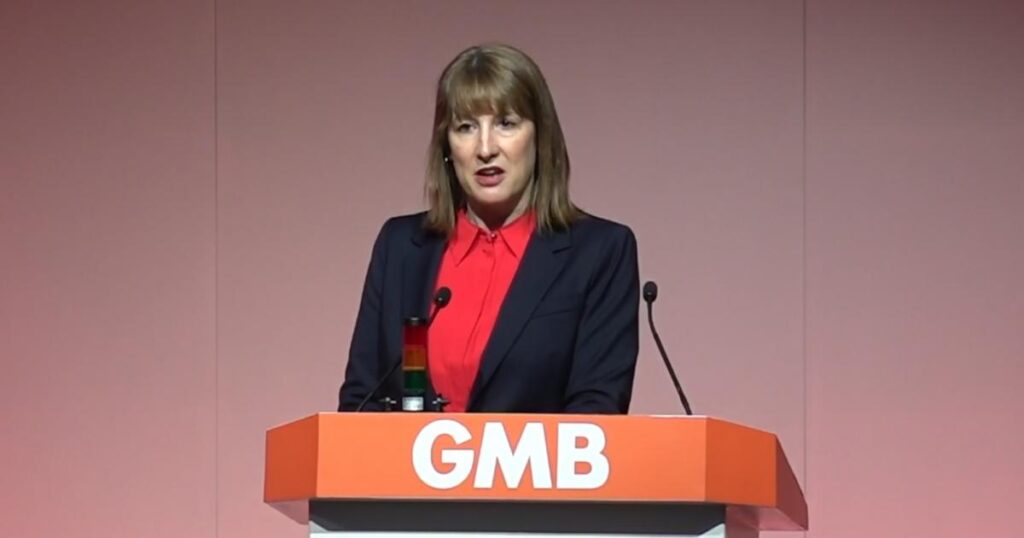Ms Reeves spoke at the GMB Union conference at the Brighton Centre today, June 10.
The chancellor is due to announce funding increases for the NHS, schools and defence along with a number of infrastructure projects tomorrow, June 11, as she shares out some £113 billion freed up by looser borrowing rules.
Other areas could face cuts as she seeks to balance manifesto commitments with more recent pledges, such as a hike in defence spending, while meeting her fiscal rules that promise to match day-to-day spending with revenues.
At the Brighton conference, Ms Reeves said the government was “making Labour choices” and “making progress”.
She said: “I know that not enough working people are yet feeling that progress, and that’s what tomorrow’s spending review is all about – making working people better off, investing in our security, investing in our health, investing in our economy.
“This government is going for growth because that is the best way to create jobs, boost wages, lift people out of poverty, and sustainably fund our schools and our hospitals and all the public services we rely on.
“And we’re doing things differently, because unlike the Tories, I don’t think that the only good thing that a government can do is get out of the way.”
Ms Reeves also said the government was investing in “the biggest rollout of nuclear power in a generation”.
Read more: Dozens of disabled people protest in city against government welfare reforms
The chancellor is under pressure to reverse course on cuts to benefits after she confirmed a U-turn on winter fuel payments that will see them restored to pensioners with an income of less than £35,000-a-year.
She stood firm on welfare reforms today as a union representative urged her to “think again” on the cuts.
The chancellor said the current system is “not sustainable” and that reforms aimed to get those who can work back into work and help “fulfil the ambitions of people with disabilities themselves to get back into work”.
The reforms include plans to tighten the eligibility criteria for personal independence payments, known as Pip.
Source link
[Featured]
[Just In]




